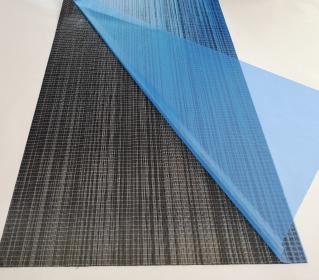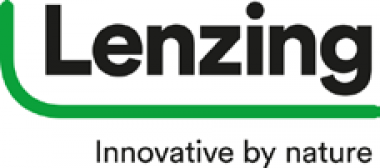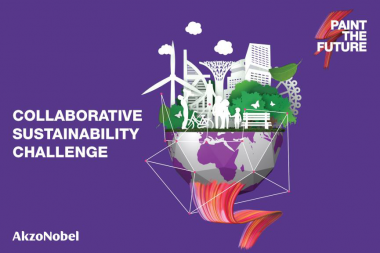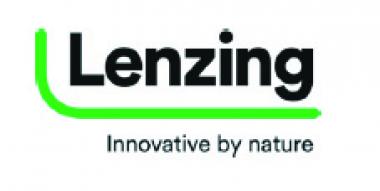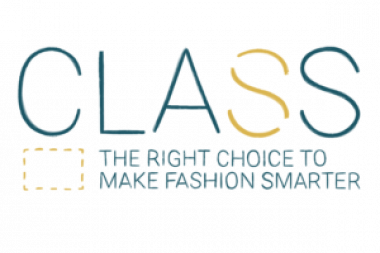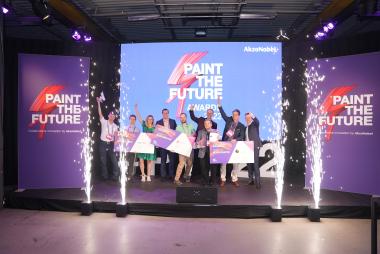Hexcel Composite Solutions for the Automotive, Marine, Wind Energy and Recreation Markets at JEC World 2022
Hexcel will present a wide range of high-performance composite innovations for the Automotive, Marine, Wind Energy and Recreation markets during JEC World 2022 in Paris on May 3 – 5.
G-Vent Technology for Marine Structures
Hexcel has developed a new technology for out-of-autoclave (OoA) processing that delivers a game-changing reduction in process time and cost for marine manufacturers without compromising mechanical performance. Hexcel has leveraged its experience in aerospace and wind energy to develop its new G-Vent technology for OoA processing of highly loaded, thick section marine structures such as masts, foils, and wind-assisted ship propulsion (WASP) components. A full range of Hexcel marine prepregs are now available with integrated G-Vent technology, reducing the requirement for debulking steps and ensuring extremely low porosity (<1%) regardless of the laminate thickness. Leading marine non-destructive testing specialists Q.I. Composites recently confirmed that the thick section G-Vent panels they had evaluated had void contents and laminate quality in line with state-of-the-art autoclaved prepreg components. Visitors to the Hexcel stand will see a unique 400mm carbon cube cured in a single stage using 695 layers of HexPly M79 carbon fiber UD600 prepreg with G-Vent technology.
New HexPly® Nature Range Sustainable Prepregs
HexPly® Nature Range prepregs feature proven resins such as HexPly M49, M78 and M79 with bio-derived epoxy resin content. Created for use in all industrial markets, HexPly Nature Range materials can be seamlessly integrated into existing production processes, maintaining consistent mechanical performance and processing properties. A dedicated sustainability corner of the Hexcel stand will detail Nature Range products optimized for automotive, marine, wind energy and winter sport applications. The display will include an alpine ski produced by leading manufacturer Tecnica Group Ski Excellence Center which produces skis for Blizzard and for Nordica using HexPly Nature M78.1 UD flax prepreg material. In addition to the reduced environmental impact of the sustainably grown reinforcement, the flax fiber laminates also improve impact resistance and vibration damping in the ski.
HexPly® XF Surface Technology for Improved Part Surface Finish Quality
HexPly XF is a lightweight, semi-preg material that replaces traditional in-mold gel coat. It eliminates time-consuming refinishing work typically required to obtain a paint-ready surface and produces lighter, more consistent parts with shorter cycle times and a cleaner working environment. Visitors to the stand will see a composite panel illustrating a high-quality painted surface enabled with XF technology in a diverse range of industrial applications such as super yacht roof parts, Class A surface automotive panels, and both prepreg and infused wind turbine blades.
HexPly® M49 Prepreg for Automotive Visual Carbon Parts
HexPly M49 is easy to process and is especially suitable for visual carbon fiber-look applications such as the Brabus hood scoop on display on the Hexcel stand at JEC.
HexPly® Prepregs and HiMax® Reinforcements for Performance Marine Structures
Using a scale model of a Gunboat 68 performance sailing catamaran, Hexcel will illustrate how its HexPly and HiMax materials provide manufacturers with a complete set of lightweight composite solutions for high-performance marine structures. HexPly prepreg was selected for critical structural parts of the Gunboat 68 and provides very high mechanical performance including high dry and wet Tg.
Heavyweight HiMax reinforcements offer high deposition rates and remain easy to handle after cutting, making them highly suitable for industrial applications. In combination with a lightweight PrimeTex® woven fabric, the package of carbon fiber HiMax materials developed for the Gunboat 68 enabled consistent resin flow during infusion with reduced surface print-through.
Hexcel Fibers and Reinforcements for Lightweight Sporting Equipment
Sporting equipment manufacturers rely on Hexcel composite materials to deliver the ultimate performance at the lowest possible weight. Hexcel will exhibit a number of the latest high-performance sporting equipment applications such as a Bauer hockey stick featuring PrimeTex 98 gsm AS4C 3K fabric and a Corima tri-spoke cycling wheel made with lightweight Hexcel carbon fiber UD tape. Hexcel will also demonstrate how its HexTow® carbon fibers are used in key leisure and marine applications by displaying an AEROrazr solid carbon rigging component manufactured by spar and rigging manufacturer Future Fibres for the 36th America’s Cup.
Hexcel Corporation / 100% Marketing


